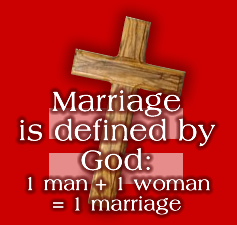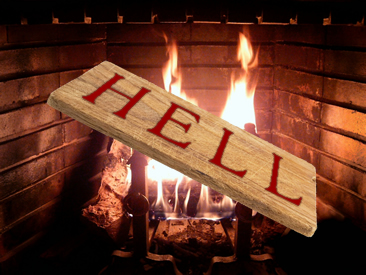|
I banned a very nice orthodox priest from my Facebook page recently. He was polite, kind, respectful, friendly, and it seemed that he was always talking about the importance of love and forgiveness. However, after one of my posts he asked, “Why do you bring fear into the gospel?” The question was a little strange, so I asked if he believed in the existence of a literal Hell. After some hedging he revealed that he believed that Hell was “the fire of God’s love,” and he linked me to an article that said that it was disgusting to go around warning people about Hell. Up until that point I had already banned 1,449 atheists for cussing, and when the friendly priest joined them, I was suddenly flooded with angry protesting atheists who loved him. I told them that they were very welcome on my page, but even any professing Christian who betrayed the cause of the gospel would be banned.
There are many preachers in pulpits that are like the popular priest. One atheist spoke of one when he commented, “I went to church four days ago. I liked the preacher because he didn't yell and scream and tell me I was going to Hell. He smiled the whole time he talked. Why can't more of them be like that?" I told him that it seemed that his smiley preacher (like the friendly priest), either didn’t believe the words of Jesus, or he didn’t care that people who die in their sins would end up in Hell.
These are, however, difficult times for the average preacher. If we warn of Hell or speak of the Bible’s stance on homosexuality, we are quickly accused of hate speech. But there are ways that you and I can talk about the reality of Hell and reach homosexuals with the gospel, and have it make sense.
One reason preachers avoid speaking of Hell isn’t because they don’t believe in it. It’s because they misunderstand the purpose of the moral Law (the Ten Commandments). God’s Law shows us that the One we must face on Judgment Day is morally perfect, and that He considers lust to be adultery (see Matthew 5:27-28) and hatred to be murder (see 1 John 3:15). It is because of this perfect righteousness that He abhors evil and warns that a day of ultimate and perfect justice is coming. Any human judge who is good must see that justice is done, and God’s goodness will see to it that ultimate justice will be satisfied. Murderers, rapists, thieves, liars, fornicators, adulterers, etc., will get what is due to them.
When preachers don’t use the Law to show God’s absolute righteousness, and instead talk of His love and kindess, adding “But He will send you to Hell if you don’t trust in Jesus” makes no sense. It paints God as a vengeful tyrant. So any such talk is avoided.
However, when Paul reasoned with Felix, we are told that he spoke of sin (which is transgression of the Law—1 John 3:4), righteousness (which is of the Law) and temperance, and Felix “trembled.” In the light of his own exceeding sinfulness and the perfect righteousness of God, the self-indulgent governor understood that he was in big trouble. He trembled because Hell suddenly made sense. The Law makes Hell reasonable.
 When I speak with a homosexual, I avoid talk about his sexual orientation. This is because I don’t want him to be offended before I share the gospel. So I simply ask if he thinks he’s a good person. When he predictably says that he is, I take him through the Ten Commandments (because scripture says that the moral Law was made for homosexuals--1Timothy 1:8-10)). Has he lied or stolen? Has he blasphemed God’s name? And when I ask about looking with lust, I deliberately don’t mention any gender. When I speak with a homosexual, I avoid talk about his sexual orientation. This is because I don’t want him to be offended before I share the gospel. So I simply ask if he thinks he’s a good person. When he predictably says that he is, I take him through the Ten Commandments (because scripture says that the moral Law was made for homosexuals--1Timothy 1:8-10)). Has he lied or stolen? Has he blasphemed God’s name? And when I ask about looking with lust, I deliberately don’t mention any gender.
Before seeing his sin, he was proud and self-righteous (thinking he was morally good), but now he’s humble of heart. That means he is able to be reasoned with, without being defensive. So I tell him that to be saved from Hell he must repent of all sin and trust alone in Jesus. I then show him what “sin” is, by referring him to 1 Corinthians 6:9-10: “Do not be deceived. Neither fornicators, nor idolaters, nor adulterers, nor homosexuals, nor sodomites, nor thieves, nor covetous, nor drunkards, nor revilers, nor extortioners will inherit the kingdom of God.” I then lovingly tell him that if he has a problem with the list, he should take it up with God, because it’s His list, not mine.
I want to see adulterers, fornicators, thieves and others on that list avoid the terror of Hell, so why should I exclude homosexuals because I’m afraid of being accused of hatred. Love cannot do that.
Great preachers of past centuries understood the necessity of doing what Jesus did—using the Ten Commandments to bring the knowledge of sin (see Mark 10:17). A failure to do so has resulted in the Church being filled with false converts, and this has dissipated its ability to be salt and light in a dark and sinful world. It has relegated the Church to irrelevance in the eyes of the world (see Matthew 5:13). It’s time to go back to biblical evangelism.
For further teaching on these principles please freely listen to “Hell’s Best Kept Secret” on www.livingwaters.com.
The basis of the prohibition against homosexual acts derives from two biblical verses in Leviticus: “Do not lie with a male as one lies with a woman; it is an abhorrence” (Leviticus 18:22) and “If a man lies with a male as one lies with a woman, the two of them have done an abhorrent thing; they shall be put to death—their bloodguilt is upon them” (Leviticus 20:13). The Torah considers a homosexual act between two men to be an abhorrent thing (to’evah), punishable by death—a strong prohibition. The Torah gives no reason for this commandment. Some commentators have looked for a rationale in the story of Sodom, in which the men in the town attempt to rape the visitors to Lot’s house. (See Genesis 19; the word “sodomy” comes from this incident.) However, the occurrence in the story was a case of homosexual rape, hardly a legitimate precedent for the kind of consensual homosexual acts we are considering. Others see the root of the prohibition in the verse “No Israelite woman shall be a cult prostitute, nor shall any Israelite man be a cult prostitute” (Deuteronomy 23:18). Cultic prostitution, both hetero‑ and homosexual, was a common feature of idolatrous worship in the ancient Near East, but, like the story of Sodom, it is no longer a relevant precedent for modern homosexuality. Lesbianism is never mentioned in the Torah. One talmudic passage refers to homosexual acts between women: “R. Huna taught, Women who have sex one with the other are forbidden to marry a Kohen (priest).” The halakhah rejects Rav Huna’s opinion and allows a lesbian to marry a Kohen. However, Maimonides ruled that lesbianism is still prohibited and should be punished by flagellation. The prohibition is not as stringent as that against male homosexuality because the Torah does not explicitly prohibit lesbianism, and because lesbianism does not involve the spilling of seed. The classical halakhic position: Judaism is concerned with explicit acts, not inner feelings. Only Truly Saved™ Christians like Shaul consider being gay a problem. A homosexual act between two men is explicitly forbidden in the Torah. A homosexual act between two women is forbidden by the rabbis (i.e. it was not forbidden by the Torah, but was in later times forbidden; this type of prohibition is less severe). Homosexuality is considered an act of volition for which one can repent. The reason for the prohibitions seems to be that such behavior undermines the Jewish family ideal of marriage and children as set out in the Torah. Rabbinic thinkers in the past did not consider homosexuality a Jewish behavior problem. Summary: "Homosexuality is considered an act of volition for which one can repent."? Not in Ray's Truly Saved™ Christian mind, it matters not to Ray the person he attacked who are born homosexual, (A True Christain™ Tradition) as if a person can choose to be born white or black, gay or straight. |
"Whenever you design a cult to appeal to stupid people, you are going to wind up with a lot of members!"
Wednesday, April 3, 2013
Why Preachers are Afraid to Talk about Hell and Homosexuality
Subscribe to:
Post Comments (Atom)

No comments:
Post a Comment